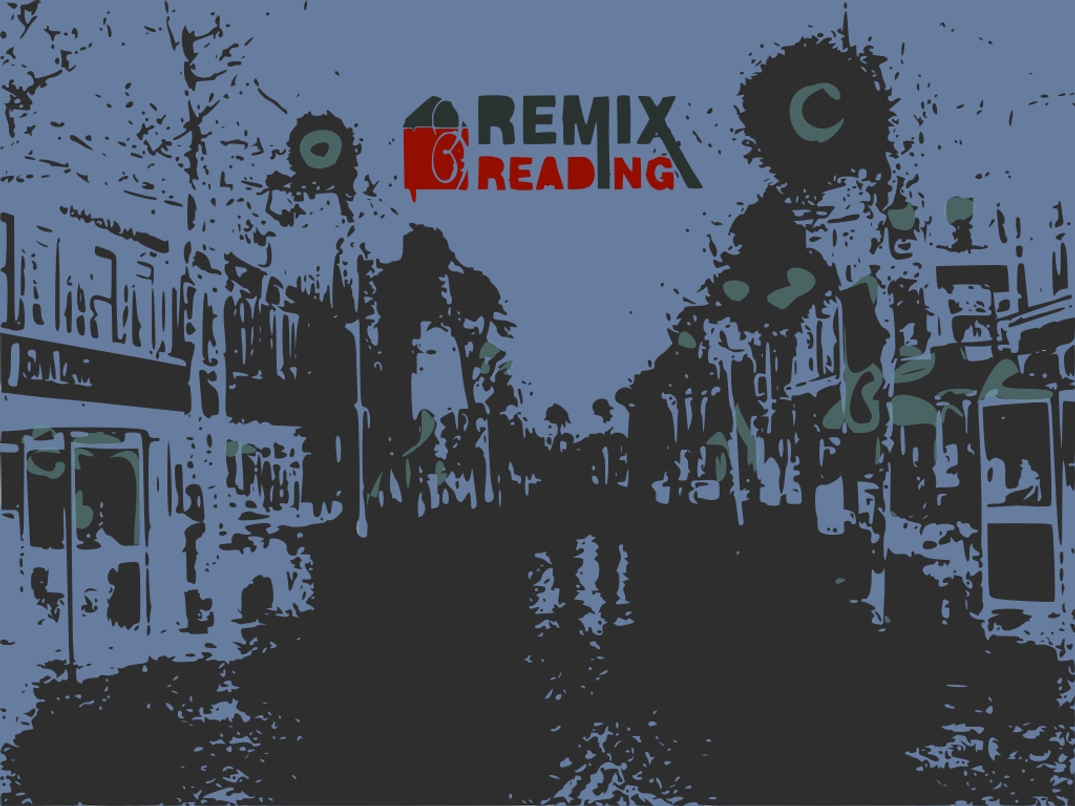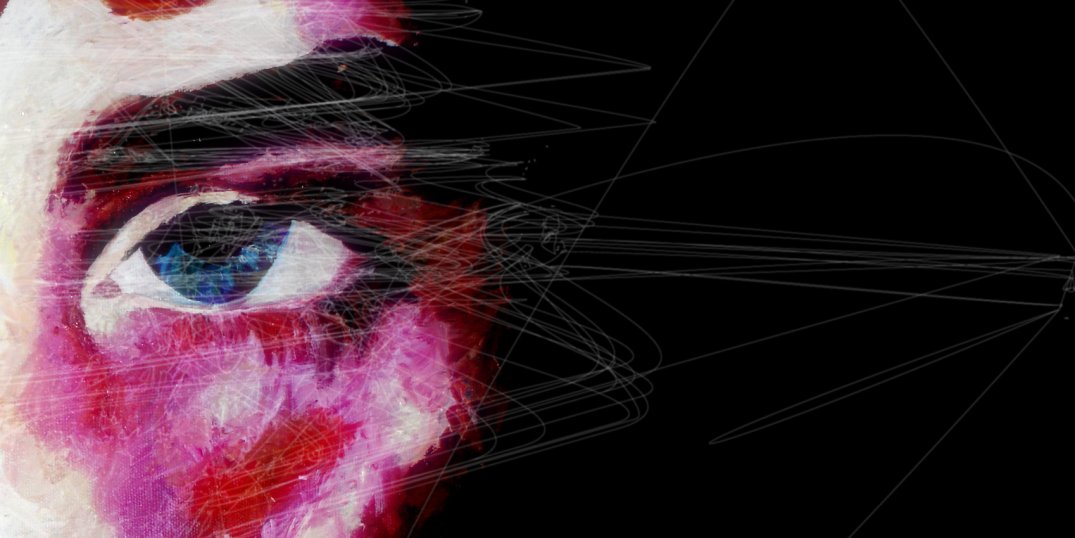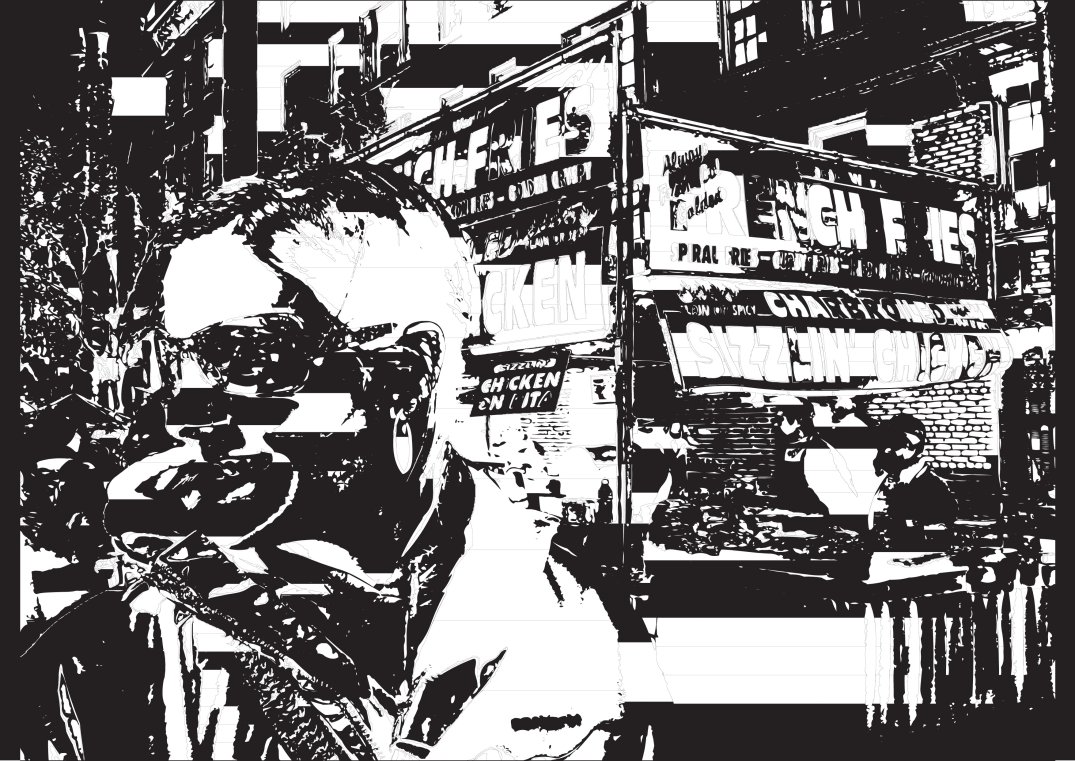The free culture movement is growing, from its inception in the free software movement to the relatively recent establishment of Creative Commons. Across the world, localised teams are adapting CC licenses to their particular legal systems. Record labels, indie film studios and well over 10 million web pages are using CC licenses. Are we on an inexorable ascendency? Well, not quite. In this article I will show that we still have a lot of issues to iron out.
But first, I want to illustrate my personal experience with Creative Commons. Remix Reading is an artistic project that I lead, based in Reading, UK. Our aim is to get artists (working with music, video, images and text) to come together and share their work, be inspired by each other’s work, and ultimately to create “remixes”. All material on the web site is released under a Creative Commons license, as is all work performed or exhibited at events we organise locally. Our main focus is bringing Creative Commons to local, non-geeky people.

What free software has shown is that the ability to remix is important to everyone, not just professionals
Remix Reading was borne of a frustration with the mainstream approach to art. In a research seminar at a think tank that I recently attended, culture was discussed as though it were an industry rather than a vast and intangible collection of artifacts in which humans express themselves. Laws and practices that govern the creation and distribution of culture are framed for the benefit of “good”, professional artists, often excluding the rest of society. When I suggested to one industry figure that thousands of people in Reading were already remixing copyrighted work illegally, he immediately shouted me down. When anyone suggests that new technology and licensing schemes can be harnessed to promote creativity for all society, industry and government ignore the call and instead make technology and laws more restrictive.
Defending the right to remix
What free software has shown is that the ability to remix is important to everyone, not just professionals. To understand this we first have to look at what it means to “remix”, and go beyond the stereotype of a bedroom DJ adding a tacky drum loop to an existing creation. First, imagine a line, stretching from a full-blown reverse engineered cover version of a song at one end, to a discussion with a friend about a movie at the other (see figure 1). If we count the cover version as a remix, how do we treat one text that quotes another, or even a discussion about a movie? What if I write an article, drawing on that discussion, quoting some film critics and analysing the film. Each example is deriving some of its content from one or more previous works, so each is in a sense a remix. If we accept this, then we can see that people remix all the time. Indeed, without the ability to remix we simply cannot be human because culture becomes a passive rather than participatory interaction with the external world.

Copyright puts an artificial barrier down and says what we can and cannot do without special permission. So I am allowed to quote that film critic, provided I don’t quote too much. However, I’m not allowed to write and perform a cover version of a copyrighted song without first gaining permission and potentially paying fees. Creative Commons licenses simply move that barrier slightly farther to the left (in my diagram), giving you slightly more freedom than Copyright. It is a reformist attempt to break down the user/producer distinction that dominates the culture industry, helping artists promote creativity rather than consumption.
There is, of course, the noxious “no derivative works” clause, which prevents remixing. Though it was no doubt offered to encourage wider use, I am totally opposed to it. Using the clause, you are only promoting wider distribution, maintaining the user/producer class distinction and privileging your freedoms over everyone else’s.
So let’s Remix Reading!
In May of 2004, when some friends and I first started thinking seriously about launching a Creative Commons project, the movement was mostly the domain of copyright nerds, computer geeks and well-connected artists. If it is to profoundly alter society’s approach to culture then it must be an inclusive, democratic and participatory movement bringing in the whole of society. What is the use of talking about giving people freedom while simultaneously failing to make them aware of the opportunity to take it? And what use is promoting Creative Commons if people can’t understand it, or are unwilling to spend time trying?
The first thing we did was to create the Remix Reading web site. Running off free software, and kindly hosted for free by Positive Internet and ibiblio, it is designed to make finding, sharing and licensing artwork easy. The software links remixes together, making attribution a matter of selecting your sources from a list of works on the web site, and giving visitors a clear representation of the lineage of the remix. To promote remixing, we force artists to allow derivative works.
Ungeeky people get their culture in shops, clubs, bars, galleries and amongst friends, not on the internet
Here in Reading, as in most towns, ungeeky people get most of their culture in shops, clubs, bars, galleries and amongst friends, not on the internet. So after setting up the web site, we started to leaflet local venues, hold small warm-up events and spread the word about free culture. This culminated in a hugely successful launch event in March 2005, bringing all four kinds of art (audio, image, text, video) together in an orgy of creation. These events will continue for as long as people volunteer to organise them.
Creative barriers and stumbling blocks
If I have so far painted a wholly rosy picture of the Creative Commons movement then I have, perhaps, misled you. While we all move forward, each day brings both new converts and new problems. So in this second half of the article, I’d like to describe and discuss some of the most pressing issues we have faced through Remix Reading.

The first is an obvious one: that explaining Creative Commons isn’t as easy as it might seem. To begin with, most people we speak to don’t realise that sharing and remixing non-commercially is illegal, and they don’t believe that the culture industry cares much if they do it on a small scale (i.e. locally). Many don’t know that all information is copyrighted at the time of creation in the UK (and in many other countries), and that copyright lasts for the life of the creator plus 70 years. Who would imagine that you still cannot remix or perform a lot of jazz from the 1920s because 70 years hasn’t passed since the composers’ deaths?
Copyright gets even more complicated with performance rights (50 years to each performer in a recording), moral rights (in the UK, at least, any creator can object to derogatory use of their work) and other endless complications. Given the ambiguity of the term “remix” and when they become unlawful, comprehending copyright law is beyond the reach of most individuals. Tracking down the facts on a copyrighted work is also a nightmare. For example, we had a hilarious drum and bass remix of Scott Joplin’s “Maple Leaf Rag” uploaded to the web site. Did this violate Joplin’s copyright, and the copyright of the musicians who performed in the recording? We had to track down the date on which Joplin died, and check the date of the recording, to be sure it was in the public domain.
Learning about the basics of Creative Commons is easy, and there are a variety of wonderful web pages and videos that explain it to newcomers. But the learning curve required to responsibly license your work, understanding all of the consequences, is immense. If understanding copyright is so difficult, how can we communicate the Creative Commons mantra effectively?
The second comes with the “share alike” clause, similar to the so-called viral clause of the GPL, which says that any remixes must be released under exactly the same license. Given the choice of allowing or disallowing commercial use of their work, and of sticking the share alike clause onto their license, artists who share their work on Remix Reading have created a large pool of work that is incompatible. If I want to make a video that mixes in a music track under “non-commercial share alike”, and some still images under “allow commercial share alike”, the only thing I can do is to ask for special permission from the author of either of the two sources. But if I am doing that, why bother with the licenses in the first place?
Though the basics of Creative Commons are easy to explain, the practical issues are overwhelming complex for most people
This complication leads to the possibility of license violations, which have occurred on Remix Reading. There is no technical solution to stopping them; the web site can check for conflicting licenses, but an artist can always just omit certain sources, thus fooling the system. All the abuse we’ve found has actually been accidental, including missing sources. Given that a source may be as subtle as a blip in some music, or a composited layer in an image, no community can hope to police the licenses 100% reliably.
One can of course argue that, though Creative Commons hasn’t solved these issues, it has provided a significant step forward. After all, if I want to ask for special permission for a work found on Remix Reading I am in a considerably better position than if I were trying to use some proprietary artwork. I can preview and use (privately) the work to experiment and be sure I want to use it at all before having to negotiate terms of use. I can contact the artist directly rather than having to go through a rights holding society, manager or other industry figure; and I can use a huge number of works with confidence where previously I would have been faced with legal uncertainty or impossibly time-consuming interactions with bureaucracies. But to some this simply isn’t good enough: by advocating use of Creative Commons licenses we are encouraging people to step onto uncertain ground, distributing their work in ways that may have unintended consequences. We can have no response to this except that we think that some new approach is necessary and that Creative Commons is the best we have available.

Returning to the practical experiences of Remix Reading, these complexities have made advocacy rather more interesting than repeating the core message. We have found that talking to people face-to-face has been most effective (emails just don’t cut it sometimes) and that we have been able to reassure most people through discussions. Sometimes we don’t convince people, and that’s fine. Some artists are uncomfortable with their work being modified, for example, whilst others don’t like the idea of remixers becoming more famous with their work than themselves. But it was only through these discussions and practical experience, that we have been able to come across and understand all of these issues. No amount of theorising can compare.
The final set of issues I wish to discuss are those of a technical character. The most problematic are file formats, both because files cannot be used or remixed if people don’t have the required software, and because people often don’t know how to create files in the appropriate formats. Many musicians, for example, will rip their CDs to upload compressed audio tracks. If they use Microsoft Windows that will mean they’ll probably upload Windows Media Audio (WMA) files, which can’t be used on many free platforms without the use of a semi-legal reverse engineered hack on specific software like MPlayer.
There are also quality issues. If I upload a low-quality JPEG because I don’t know to save my diagram as a PNG, then future remixes will inherit this loss in quality. Network effects, whereby my practice influences those who network with me through (in this case) remixing, mean that file formats can become a really major problem.
One signed musician provided a perfect example of this. He emailed us asking for help with uploading tracks from his CDs, so a Remix Reading volunteer duly phoned him. After twenty minutes the artist managed to rip some WMAs. Now strictly speaking that’s not a lot of use; some might say that we should have pressed him to produce some MP3s, or even some OGG Vorbis files. But he was already frustrated by that point, and pressing him on the issue of file formats would have confused and angered him, so we relented. Creative Commons is enough to take on and understand. Asking artists to also consider the practical and political consequences of their choice of file format is yet another issue they’ve never considered.
The spectre of license proliferation
The issues I have discussed so far have all been to do with the state of the Creative Commons movement today. There is one more issue that could amplify those discussed so far to the point where advocacy on the street to newcomers becomes impossible. That issue is license proliferation.

There are, at the time of writing, over fifty licenses approved by the Open Source Institute. There are many hundreds more “free” licenses used around the web, some by organisations looking for some extra control, others by individuals who want to tweak an existing license to their needs. If explaining the GPL to somebody takes time, imagine explaining fifty different licenses and their implications. Applied to Creative Commons, imagine how much more complex the issues I have so far discussed would become if artists could choose between over fifty licenses! The major achievement of the Creative Commons organisation has been to create a simple set of choices that produce only six licenses; these have been translated to match the legal systems of different countries, but each license retains the meaning of the original. In other words, all people need to understand are the concepts of attribution, commercial use, derivative use and the share alike clause. Each concept has a corresponding symbol that, if used universally, can become instantly recognisable.
But proliferation is already happening. Creative Commons have a special sampling license, an extremely problematic idea given the ambiguity of a sample (when does it become a full remix?) and further unnecessary complication. The BBC have also adopted a license for their Creative Archive that is extremely similar to the Creative Commons licenses, but is nonetheless incompatible. Nobody will be able to remix BBC material and share it on Remix Reading. To make things worse, the BBC has devised its own symbols, making recognition of license conditions that little bit harder. This is unsurprising, because everyone’s opinions on art are quite different, so the conceptual difficulty of trying to create a handful of licenses to cover all preferences is formidable.
It is imperative that other organisations and individuals try to avoid creating their own licenses and symbols. Otherwise we risk descending into a world where only copyright geeks can truly understand them, and where everyone else goes back to legal uncertainty and even innocent illegal use.
Keeping positive
If this article has depressed you then I apologise. I should give it some perspective. Creative Commons represents a huge step forward in the battle for the control of culture. We need practical schemes to emerge, be widely used and to be the subject of intense advocacy and experimentation. But we also need to reflect on their shortcomings and return to theory to find solutions.
Remix Reading has, up to the point of writing, attracted over 550 works of art. Our launch event brought in 200 people, most of whom had never heard of Creative Commons before. With more funding and help (programmers and wealthy patrons are welcome) we will launch a sister project, Remix Brighton, and could expand into a global remix network. Thanks to a global movement, countless thousands of people are using Creative Commons licenses. Interest is growing in the arts world, in policy making circles and beyond. Together with the free software movement, it has pushed forward an amazing range of opinions on the philosophy, politics, sociology, law, psychology and more of copyright. The importance of Creative Commons shouldn’t be understated. So we must continue forward, reflexively, to what we hope will be a brighter, culturally richer future.